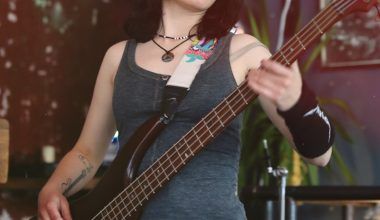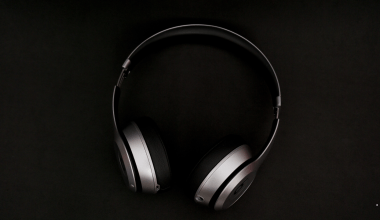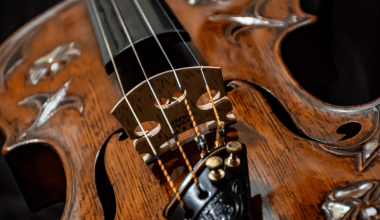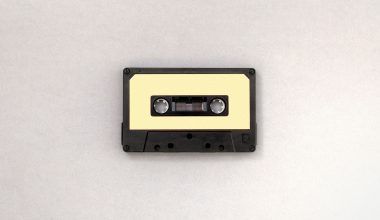Music is more than just a series of notes strung together; it’s an experience, a feeling, and a universal language that transcends boundaries. When we truly believe in music, we tap into its power to heal, inspire, and connect. Let’s dive into why music is such a significant part of our lives and how it has the power to change the world around us.
Why We Believe in Music
Music has been part of human culture for centuries. From ancient drumbeats to modern symphonies, every era has had its own unique way of expressing emotions through sound. Music speaks where words fail. It’s why we turn to it during moments of celebration, grief, or reflection.
Believing in music means understanding its ability to touch the soul. It can uplift us when we’re down, calm us when we’re stressed, and energize us when we need motivation. Music connects us to our emotions in ways nothing else can. Just think about the last time a song gave you chills or brought back a vivid memory.
The Emotional Power of Music
When you believe in music, you acknowledge its emotional depth. Have you ever wondered why a certain song can make you cry or fill you with joy? It’s because music communicates directly with our emotions. Scientists have found that listening to music releases dopamine—the “happy chemical”—in the brain.
Moreover, music helps us process complex feelings. When words fail, melodies step in. Songs of heartbreak resonate with those experiencing loss, while uplifting anthems inspire people to keep going during tough times. Believing in music means believing in its ability to provide emotional support.
Music as a Tool for Connection
One of the most magical aspects of music is its power to bring people together. Whether it’s a group of friends singing along to their favorite song or a massive crowd at a concert, music creates shared experiences. When we believe in music, we’re embracing its role as a connector.
Think about festivals like Coachella or local jam sessions in your community. These events are about more than just the songs; they’re about the bonds formed through a shared love for melodies. Even strangers can become friends when they discover they share a favorite artist or song.
Believe in Music for Healing
The therapeutic benefits of music are undeniable. Music therapy is now a recognized field that helps individuals cope with physical and emotional challenges. From alleviating stress to managing pain, music is a powerful healing tool.
When you believe in music, you’re also believing in its ability to transform lives. Hospitals often use music to comfort patients, while therapists incorporate it into treatments for anxiety, depression, and PTSD. The soothing power of sound is unmatched, proving that music isn’t just entertainment; it’s medicine.
How Music Shapes Culture
Music is woven into the fabric of every society. It reflects our values, tells our stories, and preserves our history. When we believe in music, we’re celebrating the diversity of cultures around the world.
For example, reggae music embodies the spirit of Jamaica, while classical symphonies carry the elegance of European traditions. Each genre has its roots in the people and places that created it. By exploring these musical styles, we learn about each other’s cultures and expand our horizons.
The Role of Music in Everyday Life
We often underestimate how much music influences our daily routines. Whether it’s the playlist you listen to during your morning jog or the background music at your favorite café, music sets the tone for countless moments.
Believing in music means appreciating these little moments. It’s about recognizing that the right song can turn a mundane task into an enjoyable experience. From lullabies that help babies sleep to upbeat tracks that energize workouts, music enriches our lives in ways we often take for granted.
Music as a Source of Inspiration
Artists, writers, and creators often draw inspiration from music. A single melody can spark a story, while lyrics can ignite an idea. When you believe in music, you open yourself up to endless creative possibilities.
Many successful individuals credit music as their muse. Whether it’s a painter finding the perfect color palette while listening to jazz or a writer drafting a novel inspired by classical compositions, music fuels creativity. It’s a reminder that sound has the power to shape our thoughts and dreams.
The Science Behind Believing in Music
Understanding why we believe in music involves exploring the science behind it. Studies show that music activates multiple areas of the brain, including those responsible for emotions, memory, and motor skills. This explains why songs can transport us back to specific moments in time or why we can’t help but tap our feet to a good beat.
Additionally, music’s rhythm and harmony have been shown to synchronize brain activity, promoting relaxation and focus. This scientific perspective further solidifies why believing in music is so important—it’s a natural way to enhance our well-being.
How to Believe in Music More Deeply
Believing in music starts with intentional listening. Instead of letting songs play in the background, take time to truly hear them. Pay attention to the lyrics, the instruments, and the emotions they evoke. Create playlists that resonate with your moods or explore genres you’ve never listened to before.
Another way to deepen your belief in music is by learning an instrument. Even if you’ve never played before, picking up a guitar or sitting at a piano can give you a new appreciation for the art. Engaging with music actively allows you to connect with it on a whole new level.
Music’s Role in the Future
As technology evolves, so does music. From AI-generated compositions to virtual concerts, the future of music is exciting and full of possibilities. Believing in music means staying open to these changes while cherishing the timeless aspects of the art form.
In a world where division often makes headlines, music remains a unifying force. It reminds us of our shared humanity and the beauty of coming together. When we believe in music, we believe in a brighter future.
For further reading, explore these related articles:
For additional resources on music marketing and distribution, visit DMT Records Private Limited.






